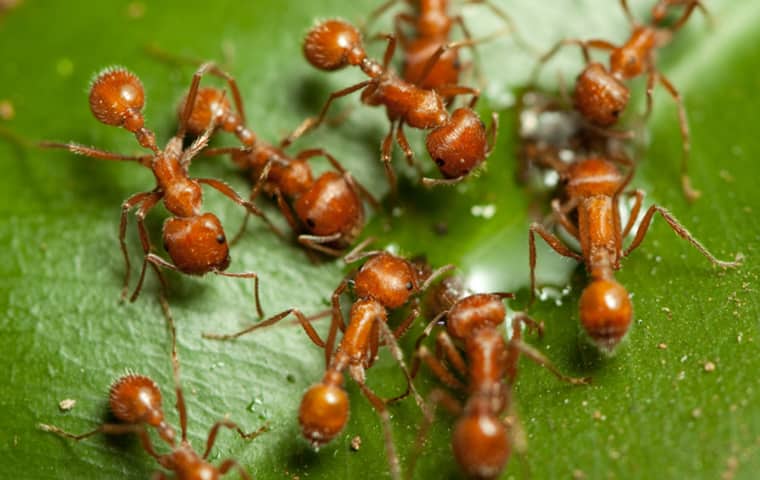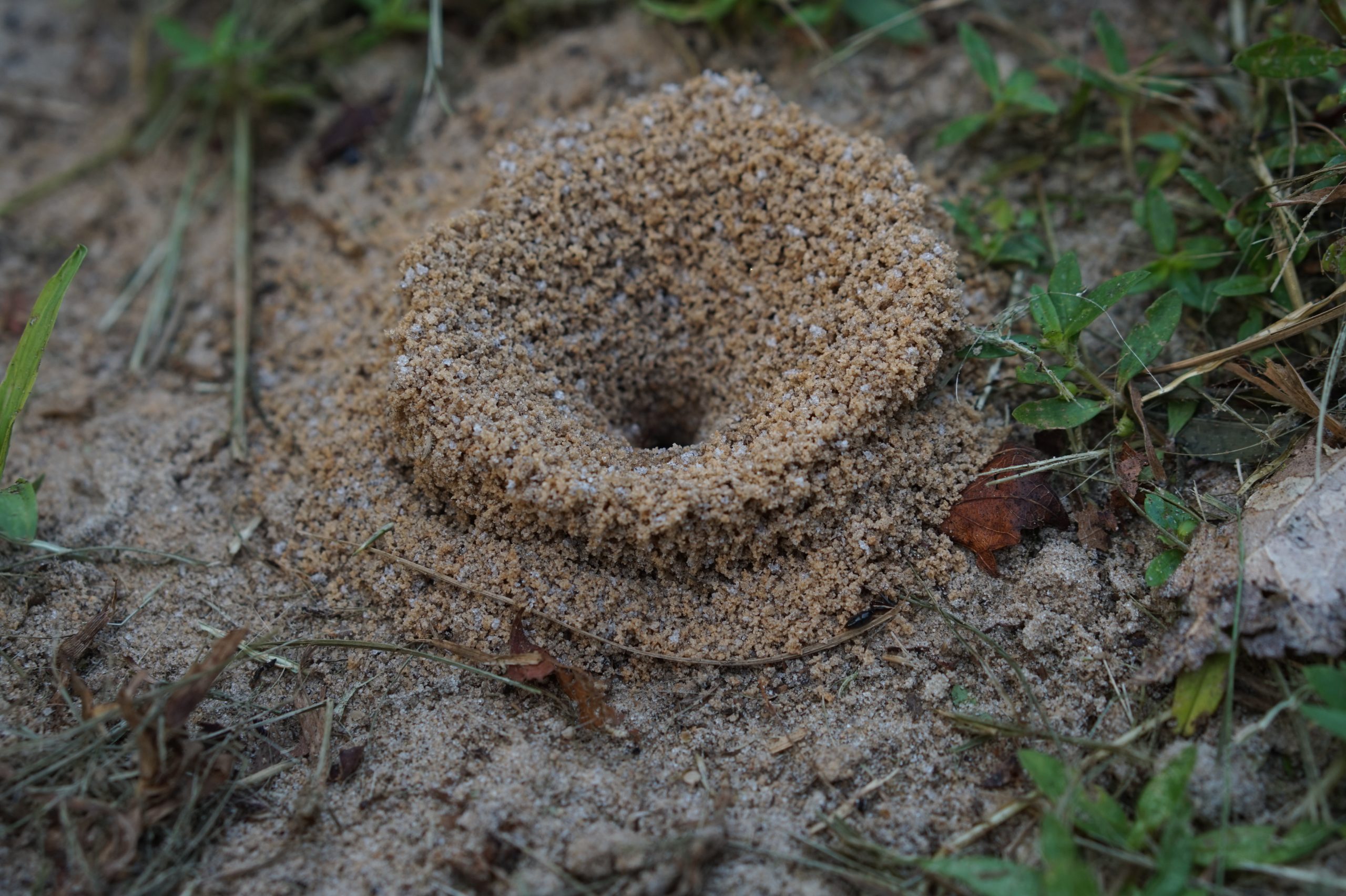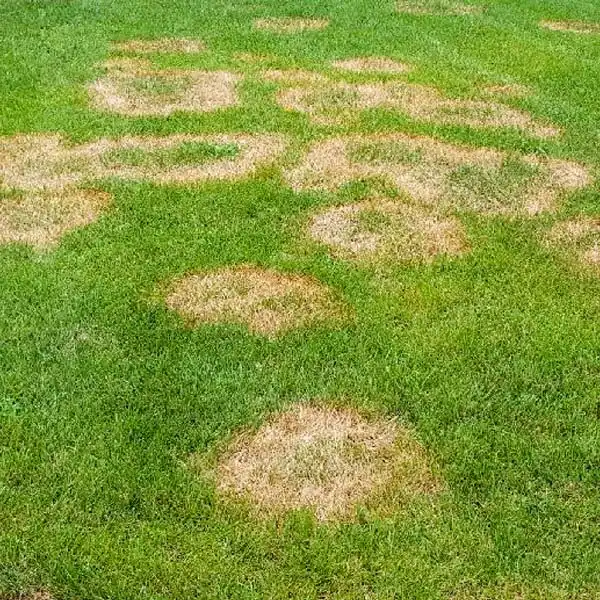Understanding the Ant Problem in South Florida Lawns
South Florida’s warm climate and high humidity create an ideal environment for a variety of ant species to thrive. These conditions not only facilitate their rapid reproduction but also support a wide range of activities throughout the year. Ants are more than just a nuisance; they play a significant role in the ecosystem, aiding in decomposition and soil aeration. However, when their populations become unbalanced, they can cause considerable damage to lawns and even invade homes in search of food and shelter.
One of the primary challenges in managing ant populations in South Florida lawns is their sheer diversity and adaptability. Different species have unique behaviors and preferences, making a one-size-fits-all control method ineffective. For instance, some species might prefer dry, sandy soil, while others thrive in moist, shaded areas. This diversity necessitates a comprehensive understanding of the specific ant species present in your lawn to effectively address the problem.
Moreover, the impact of ants extends beyond mere physical damage to the lawn. Certain species, such as fire ants, pose a health risk to humans and pets due to their painful stings, which can trigger allergic reactions in sensitive individuals. Additionally, ants can indirectly harm your lawn by farming aphids for their honeydew, a process that can lead to sooty mold and other plant diseases. Understanding the extent of the ant problem in South Florida lawns is the first step towards developing an effective management strategy that safeguards both your lawn and your family’s well-being.
Identifying Common South Florida Lawn Ant Species
In the battle against ant infestations in South Florida lawns, the first crucial step is identifying the species you’re dealing with. South Florida’s unique climate supports a diverse ant population, including several species that are particularly notorious for invading lawns and homes. Among these, the Fire Ant (Solenopsis invicta) is perhaps the most infamous, known for its painful stings and aggressive behavior. Fire ants build large mounds in open areas and can quickly take over a lawn if not controlled.
Another common species is the Ghost Ant (Tapinoma melanocephalum), easily identified by its pale color and almost translucent appearance. These ants are smaller but can invade homes in search of sweets and moisture. The Bigheaded Ant (Pheidole megacephala) is also prevalent, recognizable by the disproportionately large heads of the soldier ants. This species often displaces other ants and can cause significant damage to lawns by excavating soil.
The Caribbean Crazy Ant (Nylanderia pubens) is a more recent invader, known for its erratic foraging patterns and rapid population growth. These ants do not sting but can become a nuisance in large numbers, both outdoors and indoors. Lastly, the Florida Carpenter Ant (Camponotus floridanus), which is larger in size, can be found nesting in decaying wood or tree stumps, potentially causing structural damage over time.
Understanding the specific ant species infesting your lawn is vital for choosing the most effective control strategy. Each species has unique behaviors and preferences, making some control methods more effective than others. Proper identification is the cornerstone of successful ant management in South Florida lawns.

The Impact of Ant Infestations on Your Lawn and Home
Ant infestations in South Florida lawns are more than just a nuisance; they can have significant impacts on both your lawn and your home. Understanding these impacts is crucial for homeowners who wish to maintain a healthy and aesthetically pleasing outdoor space. Firstly, certain ant species, such as the fire ant, are known for their painful stings, which can pose a risk to family members and pets. These stings can lead to allergic reactions in some individuals, making ant control a matter of health and safety.
Beyond the immediate physical threat, ants can cause substantial damage to your lawn. Some ant species build large mounds that disfigure lawns and damage the grass roots, leading to unsightly brown patches. These mounds can also obstruct lawn mowers, making lawn maintenance more challenging. Furthermore, ants farm aphids for their sweet secretions, often protecting these pests from natural predators. This symbiotic relationship can lead to increased aphid populations, which can further harm your plants and lawn by sucking the sap from grass and foliage.
The presence of ants in your lawn can also be an indicator of other underlying issues. For example, excessive moisture or the presence of other pests can attract ants. Thus, an ant infestation might signal the need for broader lawn care or pest control measures. Additionally, if not properly managed, ants can make their way into your home in search of food and water, leading to an indoor infestation that requires professional treatment.
In summary, ant infestations in South Florida lawns can have detrimental effects on both the health of your lawn and the comfort of your living environment. Addressing these infestations promptly and effectively is essential for maintaining a beautiful, safe, and healthy home.
Natural Ant Control Methods: Safe for Your Lawn and Family
When it comes to managing ant infestations in South Florida lawns, many homeowners prefer natural solutions that are safe for both their families and the environment. Natural ant control methods can be highly effective without the need for harsh chemicals. One popular approach is using diatomaceous earth, a fine powder that dehydrates ants upon contact. Sprinkling diatomaceous earth around ant hills and the perimeter of your lawn can deter ants from entering your space.
Another effective natural repellent is a mixture of vinegar and water. Ants are repelled by the acidity of vinegar, making it an excellent deterrent. Simply mix equal parts of vinegar and water in a spray bottle and apply it directly to ant trails and the entrance of their nests. This method not only disrupts their scent trails but also encourages them to relocate.
Essential oils, such as peppermint, tea tree, and citrus oils, have also been shown to repel ants. These oils can be diluted with water and sprayed around the lawn and home to prevent ants from entering. Additionally, planting ant-repellent plants like mint, lavender, and marigold around your lawn can create a natural barrier against ants.
Borax mixed with sugar is another natural solution that targets ants effectively. The sugar attracts the ants, while the borax acts as a poison that they carry back to their colony, eventually eliminating the population. However, it’s important to use this method with caution, especially around pets and children.
By incorporating these natural ant control methods, homeowners can protect their lawns and families from ant infestations while maintaining a safe and healthy environment.

Chemical Solutions: When to Consider Professional Ant Control Products
While natural methods can be effective in managing ant populations, there are situations where chemical solutions become necessary. Professional ant control products are designed to target and eliminate ant colonies with precision, offering a more immediate and long-lasting solution to severe infestations. Homeowners should consider transitioning to chemical solutions when natural repellents and DIY strategies fail to control the ant population, or when the infestation becomes too large to manage through non-chemical means.
Professional ant control products come in various forms, including baits, granules, and liquid insecticides. Baits are designed to be carried back to the colony by worker ants, effectively eliminating the queen and the rest of the ants from the inside out. Granules can be spread across the lawn and are activated by water, penetrating the soil to reach underground colonies. Liquid insecticides provide a barrier protection, preventing ants from entering the home and lawn.
When considering chemical solutions, it’s crucial to select products that are specifically labeled for use against the type of ants infesting your lawn. South Florida is home to several ant species, and each may require a different approach for effective control. Additionally, safety should be a top priority. Opt for products that are safe for use around children and pets, and follow the manufacturer’s instructions carefully to avoid harm to your family, pets, and the environment.
In cases of severe infestations, or when unsure of the best chemical solution to use, consulting with a professional pest control service is advisable. These experts can provide targeted treatments, customized to your specific ant problem and lawn needs, ensuring the safety and health of your lawn and family.
DIY Ant Control Strategies: Tips and Tricks for Homeowners
Dealing with ants in your South Florida lawn can be a challenging task, but with the right DIY strategies, you can effectively manage and reduce ant populations. One of the first steps in DIY ant control is to identify the ant trails and nests. Once located, boiling water can be poured directly onto the nests as a quick and non-toxic method to eliminate them. However, be cautious as boiling water can also harm your lawn and plants.
Another effective natural repellent is a mixture of vinegar and water. Spraying this solution around the perimeter of your home and directly onto ant trails disrupts their scent trails and deters them from entering your property. Similarly, a blend of essential oils, such as peppermint, tea tree, or lemon, diluted with water, can serve as a natural deterrent when sprayed in ant-prone areas.
For a more targeted approach, diatomaceous earth (DE) can be sprinkled around ant nests and along their trails. DE is a natural, abrasive powder that causes dehydration and death in ants when they come into contact with it. It’s important to use food-grade DE and reapply after any rainfall.
Boric acid bait stations are another DIY solution. Mixing boric acid with a sweet substance like sugar or honey can attract ants, which then carry the poison back to their colony, effectively reducing the population over time. It’s crucial to place these bait stations out of reach of pets and children and to be patient, as this method can take several weeks to show results.
Lastly, maintaining a clean and tidy lawn is essential for preventing ant infestations. Regularly remove debris, trim overgrown vegetation, and fix water leaks to eliminate potential ant habitats and food sources. By combining these DIY ant control strategies, homeowners can protect their lawns and homes from the nuisance of ants.

Preventative Measures to Keep Ants Away from Your Lawn
Preventing ant infestations in your South Florida lawn requires a proactive approach that combines cultural, mechanical, and chemical strategies. By understanding the behavior and preferences of ants, homeowners can implement effective measures to deter these pests. First and foremost, maintaining a healthy lawn is crucial. Regular mowing, watering, and fertilizing create an unfavorable environment for ants, which thrive in stressed and poorly maintained lawns. Additionally, proper irrigation is essential; overwatering can attract ants seeking moisture, while under-watering can lead to dry conditions that some species prefer.
Another effective preventative measure is to minimize potential nesting sites. This includes regularly raking and removing leaf litter, debris, and fallen branches that can provide shelter for ants. Sealing cracks and crevices in your home’s foundation, as well as around windows and doors, can also prevent ants from entering your home in search of food and water.
Natural ant repellents can also play a role in keeping ants away from your lawn. Certain plants, such as peppermint, lavender, and lemongrass, are known to repel ants and can be strategically planted around the perimeter of your lawn. Additionally, diatomaceous earth, a natural powder made from the fossilized remains of algae, can be sprinkled around the lawn’s edge to deter ants without harming your grass.
Finally, regular monitoring and early intervention are key to preventing large-scale ant infestations. By inspecting your lawn regularly for signs of ant activity and addressing small problems before they become larger, homeowners can maintain an ant-free lawn. Implementing these preventative measures, in combination with effective ant control solutions, can help ensure your South Florida lawn remains healthy and ant-free.
The Role of Professional Pest Control Services in Ant Management
When dealing with ant infestations in South Florida lawns, sometimes the situation calls for more than just DIY solutions. This is where the expertise of professional pest control services becomes invaluable. These professionals bring a wealth of knowledge and resources that can significantly enhance the effectiveness of ant control measures. One of the primary advantages of enlisting professional help is their ability to accurately identify the specific species of ants causing the problem. This is crucial because different species may require different treatment approaches.
Professional pest control services also have access to more potent chemical solutions that are not available to the general public. These chemicals can be more effective in eradicating ant colonies, especially those deeply entrenched in your lawn. However, professionals are trained to apply these chemicals in a way that minimizes risk to your family, pets, and the environment. They can also provide targeted treatments that focus on the ants while preserving the health of your lawn.
Another significant benefit of professional services is their ability to offer comprehensive ant management plans. These plans not only address the current infestation but also include preventative measures to reduce the likelihood of future problems. Professionals can identify potential ant entry points and nesting sites around your home and lawn, and then implement strategies to block these areas.
Lastly, professional pest control services can save homeowners time and frustration. Ant control can be a daunting and time-consuming task, especially in the challenging climate of South Florida. By relying on professionals, homeowners can ensure that the problem is handled efficiently and effectively, allowing them to enjoy their lawns without the constant worry of ant infestations.
Evaluating the Effectiveness of Your Ant Control Solutions
Once you’ve implemented one or more ant control strategies in your South Florida lawn, it’s crucial to assess their effectiveness. This evaluation process is essential to ensure that your efforts are yielding the desired results and that your lawn remains free from ant infestations. Start by monitoring the treated areas regularly. Look for signs of reduced ant activity, such as fewer ant mounds or trails. It’s important to remember that some methods may take longer to show results, especially natural and DIY solutions.
Keep a record of the strategies you’ve used, including the type of ant control method, the application date, and any observations regarding its effectiveness. This documentation will help you identify which solutions work best for your specific situation and make it easier to adjust your approach if necessary. If you notice that ant activity remains unchanged or increases, consider revisiting your strategy. You may need to apply the treatment more frequently, combine different methods, or consult a professional pest control service for more potent solutions.
Feedback from family members or neighbors can also provide valuable insights into the effectiveness of your ant control efforts. They might notice changes in ant activity that you’ve missed. Additionally, staying informed about new and improved ant control products or methods can further enhance your strategy. The goal is to achieve a long-term solution that not only addresses the current ant infestation but also prevents future occurrences. By carefully evaluating the effectiveness of your ant control solutions, you can ensure a healthy, ant-free lawn that enhances the beauty and enjoyment of your South Florida home.
Future-Proofing Your Lawn Against Ant Infestations: Long-Term Strategies
Ensuring your lawn remains free from ant infestations in the long term requires a combination of vigilance, regular maintenance, and strategic planning. The key to future-proofing your South Florida lawn against ants lies in understanding their behavior and preemptively addressing the conditions that attract them. Start by maintaining a healthy lawn; a well-cared-for lawn is less inviting to ants. This includes regular mowing, watering, and fertilizing to promote robust grass growth and reduce the spaces where ants can establish colonies.
Another effective long-term strategy is to minimize potential ant food sources. This involves cleaning up food spills, pet food, and ripe fruits that may fall to the ground. Additionally, managing other pest populations in your lawn can also reduce ant activity, as ants are often drawn to the honeydew produced by aphids and other garden pests.
Implementing natural barriers and deterrents can also play a crucial role in keeping ants at bay. Consider using natural ant repellents like diatomaceous earth, peppermint oil, or citrus peels around the perimeter of your lawn and near potential entry points to your home. These natural solutions are safe for your lawn, family, and pets, offering a sustainable approach to ant control.
Regular inspections and early intervention are vital. Monitor your lawn for signs of ant activity and address any issues promptly before they escalate. If you notice new ant mounds forming, act quickly to disrupt their development. Finally, consider consulting with professional pest control services for personalized advice and advanced treatment options tailored to your specific lawn and ant species. By adopting these long-term strategies, you can create an unwelcoming environment for ants and protect your South Florida lawn from future infestations.
